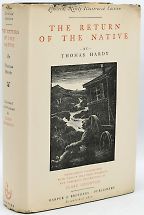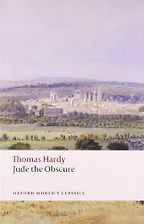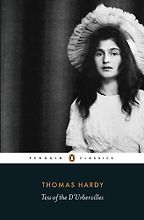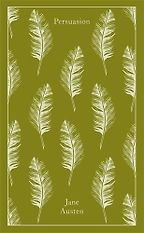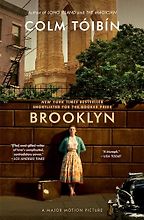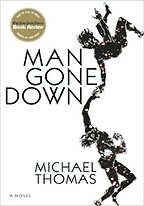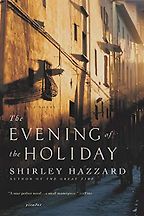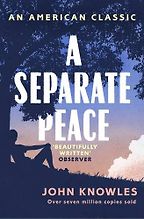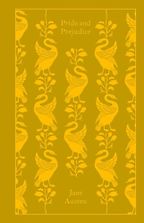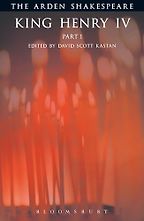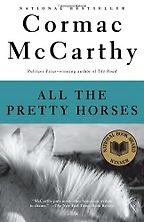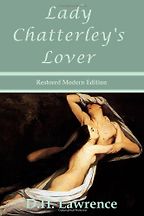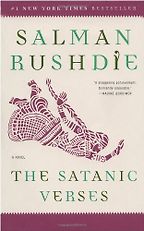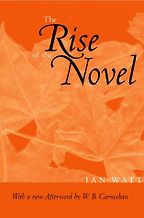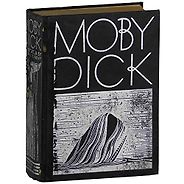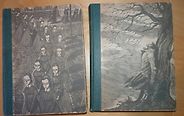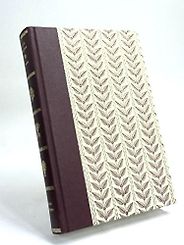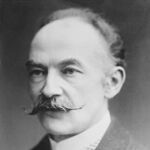
Books by Thomas Hardy
Thomas Hardy (June 1840 – January 1928) was an English novelist and poet.
“The Woodlanders is an important one, and the characters are so key. We have Grace Melbury, whose father adores her and wants to secure her a good marriage. I won’t ruin it for all your wonderful readers, but it’s a great read, and I think still very relevant today. Because his writing is all about human relationships, the human condition. And that’s what draws people to Hardy. Also the characterisation, all those interrelationships and connections that we see in Hardy’s narratives.” Read more...
Mark Chutter, Teacher
“Eustacia is very much an example of the ‘New Woman,’ that Hardy’s society could not accept, both socially and psychologically. Thus, Eustacia has to drown. That drowned woman motif represents both punishment and cleansing; she represents this new type of female sexuality and independent identity. And it also shows how somewhere like Egdon Heath can suffocate someone like Eustacia. She dreams of going to Paris, to the Louvre, of being out in the world. And of course, sadly, she has to perish.” Read more...
Mark Chutter, Teacher
“Far From the Madding Crowd has all the key ingredients of a Hardy novel, and it shows us all the different forms of love. With Gabriel Oak, we have that sense of solidity, of constant love. Then we have Boldwood, who has an obsessive love for Bathsheba. Then, of course, we have the dashing Sergeant Troy, a military man who wants Bathsheba for her money, but who is redeemed through his love for Fanny Robin. And through all these different men, Hardy is showing us the challenges and caveats of relationships—how people can be drawn into relationships without knowing what the other person is like behind closed doors.” Read more...
Mark Chutter, Teacher
“The Mayor of Casterbridge is an underrated work. I think it’s where you should start, when you start reading Hardy. It’s a tragedy that plays on coincidence, on fate, on tragedy, on character, and it will really introduce the reader to Hardy.” Read more...
Mark Chutter, Teacher
“The Return of the Native is a great, super melodramatic Thomas Hardy novel. His earlier novels were criticized for being either too boring or too sensational, and he tried to strike a happy medium with this one. He wrote a five-act tragedy about a tiny village in England and submitted it to various publishers, most of whom rejected it…He ends up placing the novel at Belgravia, which is a middle-brow magazine. They won’t publish a tragedy, so they make him add a sixth act that ends happily. A little bonus is that in any contemporary edition you’ll find, at the end of the fifth act, Hardy notes that there are two possible endings for the book, and that ‘those with an austere artistic code can assume the more consistent conclusion to be the true one.’ This might be paraphrased as ‘this book should be sad.’ It’s a classic Hardy novel, full of landscape and striving people and romance, and it’s really beautiful.” Read more...
Rosalind Parry, Literary Scholar
“Jude the Obscure is about a poor young man, a country boy, who is inspired by the example of his village teacher to commit himself to studying so that he can go to Christminster (which is transparently Oxford). For various reasons, he fails, and makes a series of disastrous decisions, and he is rejected in any event for reasons beyond his control and he dies. The epigraph is all about Christianity and the divorce laws and about the self-destructive possibilities in literary ambition itself. Jude wants to study, and he immerses himself in the Classics and so on, and, in the end, it’s that ambition that does for him. So it’s a curiously self-cancelling work in that way.” Read more...
Anthony Julius, Lawyer
“One of my favourite sections of any book in literature is the part where Tess goes to work on the dairy farm and meets Angel Claire. She’s just had such a hard, hard time, and then she has this experience of being provided for and taken care of by kind people. For once in her life, she’s safe and secure. Happiness suddenly happens to her, and it’s so unexpected. I know Angel has his issues, but Hardy is also using him to demonstrate society, cultural mores. He’s incapable for a long time to forego his religion and his society to be with her, and to accept her past. And I find it so moving and poignant—and a kind of lesson to us all, at any age. I think we all stumble into these situations when our heart, our emotion, our impulses, don’t match what people and society expect of us.” Read more...
The Best Literary Love Stories
Lily King, Novelist
Interviews where books by Thomas Hardy were recommended
The Best Literary Love Stories, recommended by Lily King
A satisfying literary love story doesn’t need to end happily ever after—but one does need to be left with a sense that two characters belong together, advises the novelist Lily King, whose book Heart the Lover follows the long tail of a campus love triangle. Here, she selects five novels from literary writers that examine love and desire in the depth they deserve.
The Best Thomas Hardy Books, recommended by Mark Chutter
Thomas Hardy, author of many classic novels including Tess of the d’Ubervilles and Far From the Madding Crowd, is best known for his books that explore the social mores and class divides of rural life in 19th-century England. Here, Mark Chutter—chair of the Thomas Hardy Society—talks us through five key texts by Hardy, and explains why they have stood the test of time.
The Best Coming-of-Age Books, recommended by Meg Rosoff
The award-winning novelist Meg Rosoff talks about coming-of-age tales, highlighting the wonder of the moment when adolescents find the world suddenly coming into focus.
The best books on Censorship, recommended by Anthony Julius
As both a solicitor advocate and literary scholar, Anthony Julius occupies a privileged place to navigate complex interactions between literature and law. He picks the best books on censorship, including three novels subjected to their own censorship controversies.
-

1
Return of the Native (Illustrated)
by Clare Leighton (illustrator) & Thomas Hardy -

2
Moby Dick (Illustrated)
by Herman Melville & Rockwell Kent (illustrator) -

3
Jane Eyre and Wuthering Heights (Illustrated)
by Charlotte Brontë, Emily Brontë & Fritz Eichenberg (illustrator) -

4
Persuasion (Illustrated)
by Jane Austen & Joan Hassall (illustrator)
The Best Illustrated Novels, recommended by Rosalind Parry
The Best Illustrated Novels, recommended by Rosalind Parry
The craze of the 1930s and 1940s was for beautifully illustrated editions of the great Victorian novels, affordably priced to take pride of place in a middle-class home. Lecturer and author Rosalind Parry recommends five outstanding editions whose illustrations are as striking as their stories.




